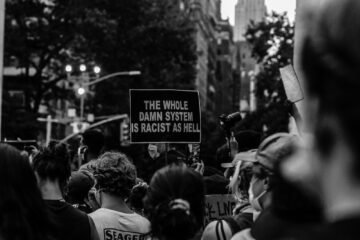Imagine a child crouched in the sun, holding a magnifying glass over a colony of ants. At first, it seems like harmless curiosity—until the tiny creatures start to sizzle under the heat. The child, unbothered by their suffering, watches with detached fascination. Some might call this a passing childhood phase. Others might see it as a sign of something darker—a lack of empathy, a dangerous indifference to suffering, or even the early hallmarks of psychopathy.
Now, shift your gaze from the backyard to the halls of power. What happens when the one holding the magnifying glass isn’t a child, but a man in charge of millions of lives?
The Pandemic: An Experiment in Neglect
Between the crucial months of January and April 2020, experts warned that immediate action was needed to curb the spread of COVID-19. Instead, then-President Donald Trump publicly downplayed the virus, compared it to the flu, and suggested it would “disappear like a miracle.” Private conversations, later revealed in Bob Woodward’s book Rage, showed that he understood the deadly potential of the virus all along. Yet, he chose not to act.
By the time Joe Biden took office in January 2021, the damage was catastrophic. Over 400,000 Americans had died—a staggering toll that could have been significantly reduced with swift federal action. Countries that took early precautions, such as New Zealand and South Korea, had exponentially lower death rates. But in the U.S., the leader at the helm let the fire rage, watching as the death count soared.
Was this incompetence? Or was it something else—a cold, calculated refusal to protect the vulnerable?
The Next Phase: Dismantling the Lifelines
Fast forward to today. Trump, now the President of the US, is once again positioning himself as the nation’s “savior.” But his actions, and those of his closest allies, tell a different story.
Elon Musk, a vocal donor of Trump and a self-styled disruptor, has waged a war against institutions designed to safeguard public well-being. His gutting of Twitter (now X) saw the dismantling of trust and safety teams, enabling the spread of disinformation and extremist rhetoric. He is now backing efforts to strip the government of diversity, equity, and inclusion (DEI) initiatives—programs often rooted in ethical leadership and social responsibility.
At the same time, Trump and his supporters are openly vowing to fire tens of thousands of government workers under the guise of corruption, targeting agencies that regulate health, safety, and the environment. Among those on the chopping block? The CDC, the EPA, and other watchdogs that prevent everything from pandemics to poisoned water to nuclear bombs.
If history is any indicator, this isn’t just a political move—it’s a death sentence for countless Americans and several other counties.
Who Benefits from Chaos?
There’s a well-documented pattern in psychology: Those who lack empathy are drawn to power. The characteristics of a psychopath—superficial charm, manipulation, a lack of remorse—are disturbingly well-suited for positions of influence. And while we can’t diagnose anyone without a clinical evaluation, we can certainly observe behavior and ask important questions:
- When thousands die due to inaction, and the response is to shift blame rather than express remorse, what does that indicate?
- When policies are put in place that knowingly result in suffering, who gains from the destruction?
- When institutions designed to save lives are dismantled with glee, is this about governance—or something more sinister?
America has always been a nation of resilience, but even the strongest colony can only withstand so much. Right now, the magnifying glass is hovering. The question is—will we scurry, unaware of the danger? Or will we recognize the pattern before it’s too late?


